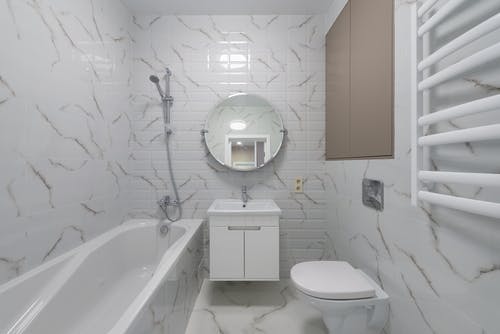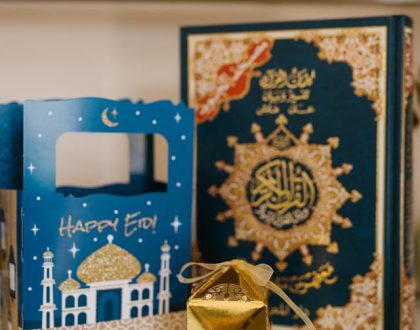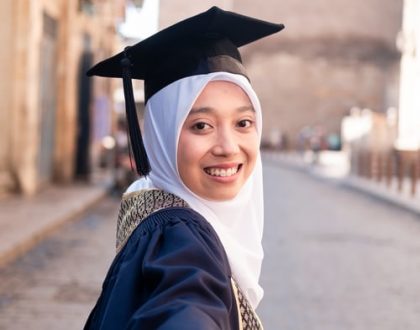Is it ok to do dhikr in the bathroom?

Firstly there is a difference between a bathroom and a toilet. Some bathrooms do not have a toilet in them. Here it is acceptable to say bismillah before you do your wudu.
With regards to bathrooms which have a toilet in them, or a toilet, one simply has to think about what sort of space that it. It is a place where on relieves oneself and contains filth. Therefore it is not an appropriate place to do dhikr.
Moreover, we have been taught to seek refuge before entering the toilet, because the shayateen like to go to dirty palces. Zaid bin Arqam (may Allah be pleased with him) has reported that the Messenger of Allah (peace be on him) said:
These toilets are peopled by Jinn and devils, so when one of you goes there say, ‘I seek protection in you from the male and female devil. “Bismillaah, Allaahumma inni a’oodhu bika min al-khubthi wa’l-khabaa’ith (In the name of Allah)” (Tirmidhi)
Meaning pray the supplication before entering the toilet. When one does dhikr one is glorifying Allah the Almighty. It should therefore be done in an appropriate place with appropriate attire.
As one is often undressed in the bathroom and toilet, it is not the state in which one should be making dhikr. Just as one would not receive guests undressed, one should be mindful of how one is dressed when one makes dhikr.
Making dhikr in the heart is another matter. But one should refrain from saying Allah’s name in dirty places.
Shaykh Haytham Tamim – Tafseer Class Q&A 5th Jan 2022
- How Allah strengthens the hearts of believers
- Why should you follow up one good action with another one?
- Don’t be a Ramadani person – Be a Rabbani person.
- How do you pray Salat al-Kusuf – the prayer during a solar eclipse
- The test of will – Tarawih Reflections 30
Recommended Posts

When can you fast after Eid?
April 07, 2024

Is it permissible to take out a student loan?
April 02, 2024

